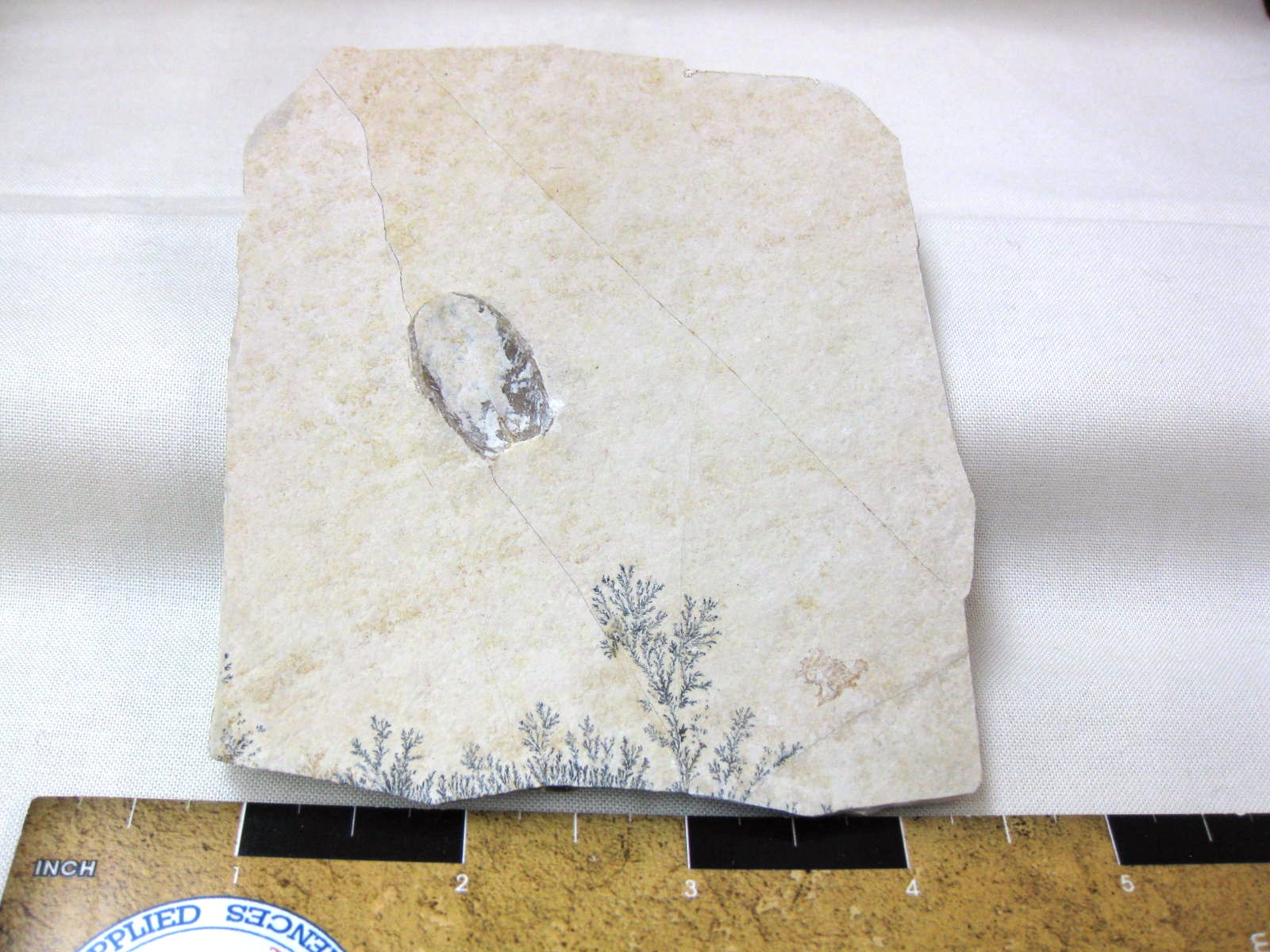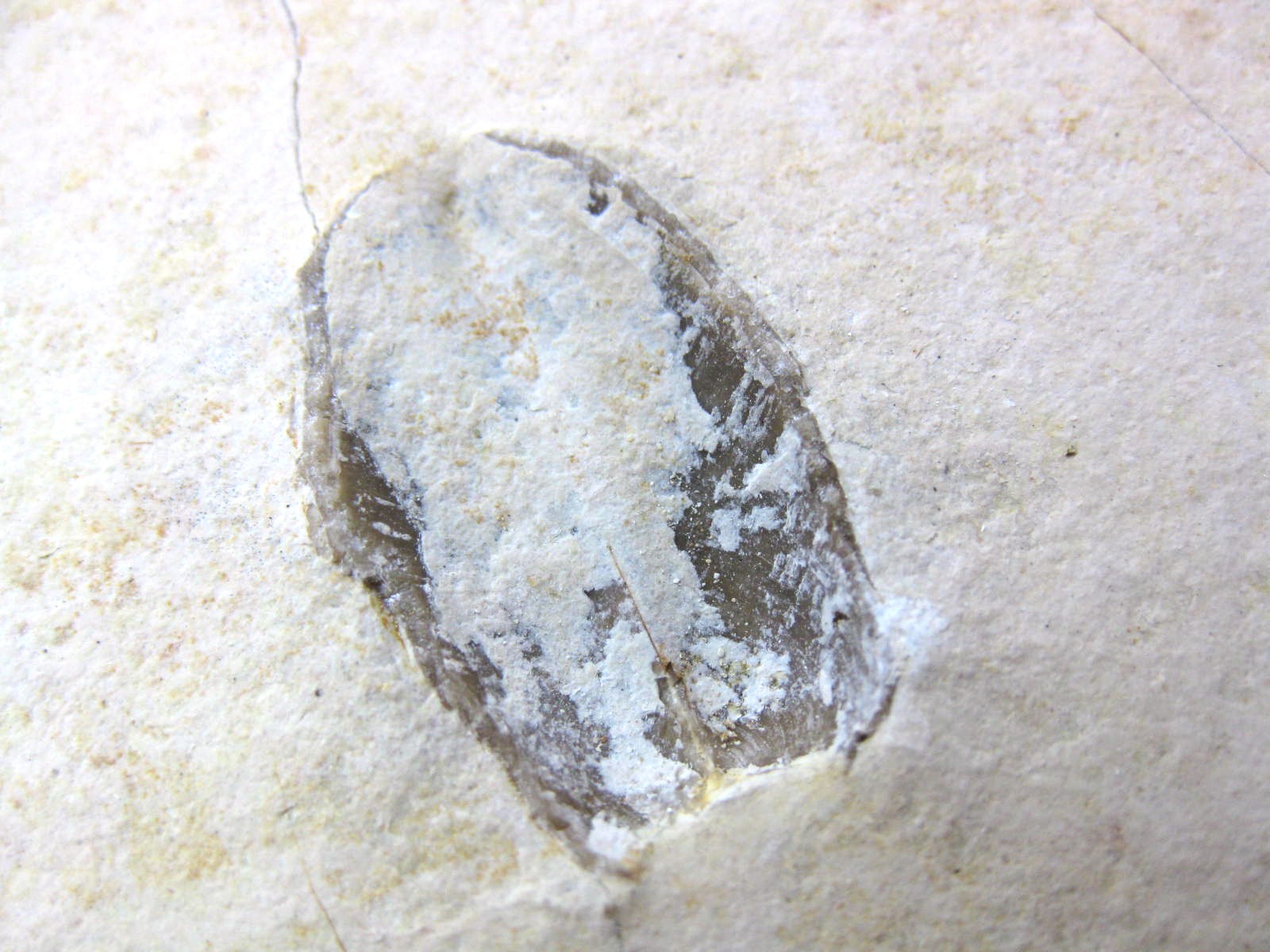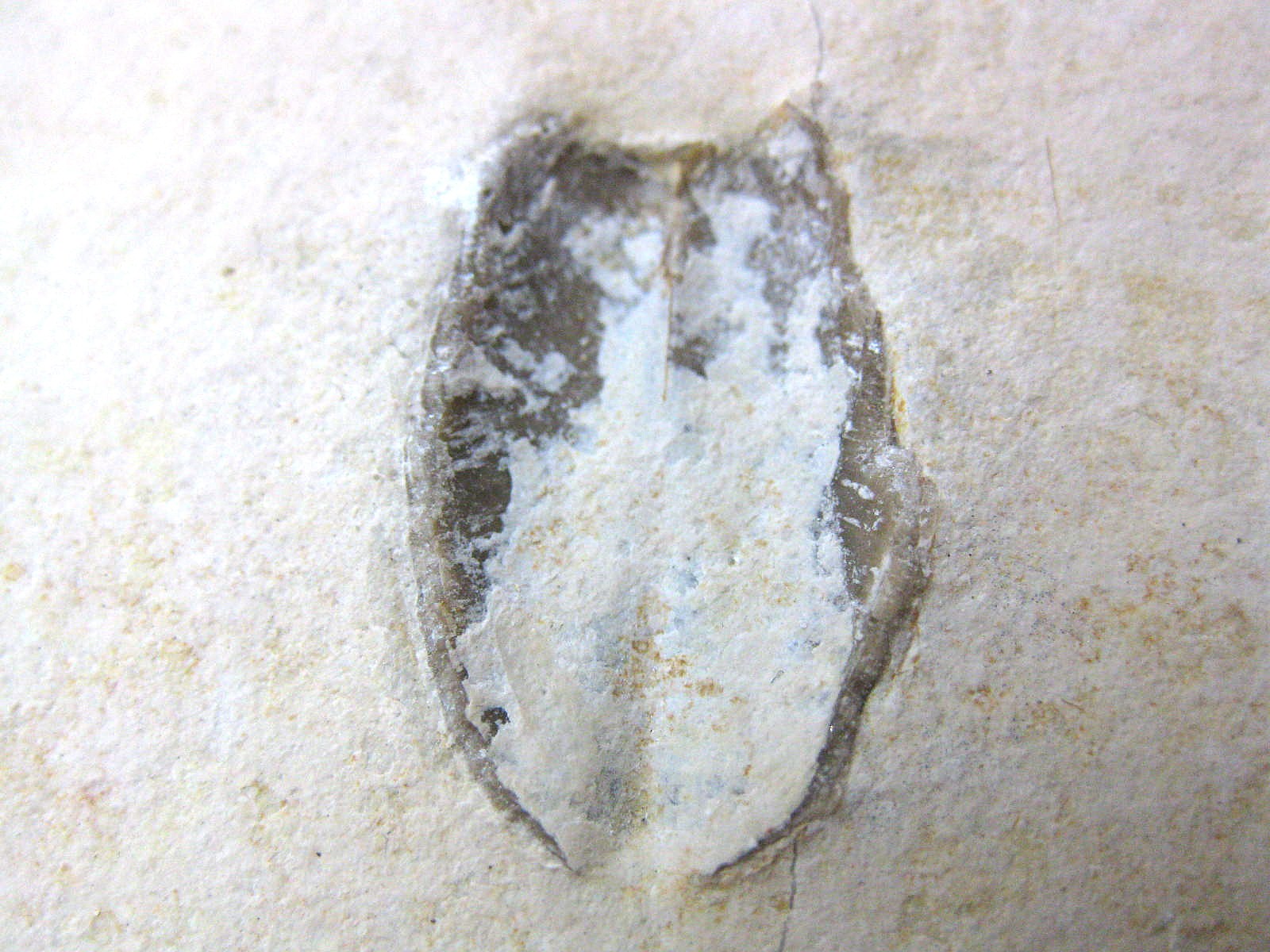Description
- Aptychus (Could use a little more matrix removal inside the jaws)
- Jurassic
- Solnhofen Limestone
- Eichsatt, West Germany
- Aptychi seem to have most often existed as bilaterally-symmetrical pairs, and were first described (incorrectly) as being the valves of bivalve mollusks. Aptychi are now considered to be either: (1) a two-valved closing hatch on the shells of extinct ammonites; or (2) a double-plate jaw-piece similar to that of some modern cephalopods. Set near to or against the shell’s terminal opening (the living chamber), the aptychi usually consisted of two identical but mirror image valves. Some authors consider the aptychus to be a jaw apparatus (mandibles), while others believe them to be paired opercula. If the latter is the case, then aptychi may have had a function similar to the head shield of modern nautiluses.
- More Solnhofen Fossils for Sale
The Solnhofen Plattenkalk, or Solnhofen limestone, is a Jurassic Konservat-Lagerstätte that preserves a rare assemblage of fossilized organisms, including highly detailed imprints of soft bodied organisms such as sea jellies.
The most familiar fossils of the Solnhofen Plattenkalk include the early feathered theropod dinosaur Archaeopteryx preserved in such detail that they are among the most famous and most beautiful fossils in the world.
The Solnhofen beds lie in the German state of Bavaria (Bayern), halfway between Nuremberg (Nürnberg) and Munich (München) and were originally quarried as a source of Lithographic limestone.
During the Late Jurassic, this area was an archipelago at the edge of the Tethys Sea.
This included placid lagoons that had limited access to the open sea and where salinity rose high enough that the resulting brine could not support life.







